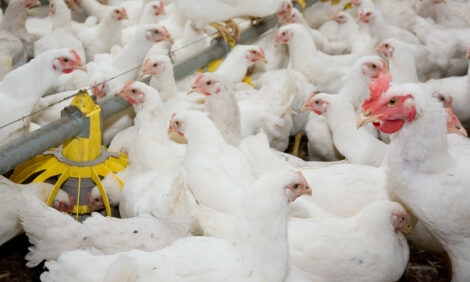



Weekly Overview: Poultry Industry Aims for Greater Sustainability; Latest on H7N9 Flu in China
ANALYSIS - With a new study into the use of locally grown protein for poultry diets in the UK and the global egg industry association meeting looking to balancing the needs of the 'Three Ps', our industry is doing its utmost to boost its sustainability. In China, 108 cases of H7N9 flu have now been confirmed. A joint international mission has just completed its report following a visit to the country at the invitation of the Chinese government, making seven recommendations to help gain control of the disease.With Mexico facing severe drought conditions again this year, the federal government has announced stringent conservation measures to preserve already tight water supplies, particularly in a large area just south of the border with the US.
Continuing on the theme of sustainability, attendees at the International Egg Commission's recent meeting in Madrid learnt that the ability to balance the needs of people, animals and the planet provides excellent opportunities for the egg industry.
In the UK, Sainsbury's Innovation Fund is supporting an ADAS project examining the extent to which higher levels of UK-produced rapeseed meal can be substituted for soybean meal in broiler chicken diets. The aim is to allow the substitution without compromising productivity or welfare, whilst reducing the environmental impact and improving sustainability of poultry meat production.
A joint international mission has completed its study of the situation regarding avian influenza A(H7N9) in China. The latest information from WHO (on 23 April) gives a total of 108 confirmed cases of the virus in humans, of whom, 22 have died.
Whilst the virus is known to be the result of a virus reassortment including one of avian origin, no link has been clearly established with poultry in the transmission to people. However, the mission team has reported: "According to available evidence, birds infected by the virus, especially poultry, and the environment contaminated by the virus are the most likely sources of infection. The risk of infection appears most concentrated in live poultry markets".
They said: "Steps taken so far, such as the suspension of live bird markets in Shanghai, were timely and sound. In Shanghai, it appears that so far poultry infections are limited to live markets". However, they cautioned that experts still have only a limited understanding of the full extent of the disease.
The first of the mission's seven recommendations is "to undertake intense and focused investigations to determine the source(s) of human H7N9 infections with a view to taking urgent action to prevent continuing virus spread and its potentially severe consequences for human and animal health".
On other forms of bird flu, FAO reports that H5N1 highly pathogenic avian flu is endemic in Egypt, continues to cause considerable economic loss to poultry producers and remains a public health challenge in the country. The Mexican authorities have reported 11 new outbreaks of H7N3 avian flu during March, including one in a village flock far from the area originally affected.









